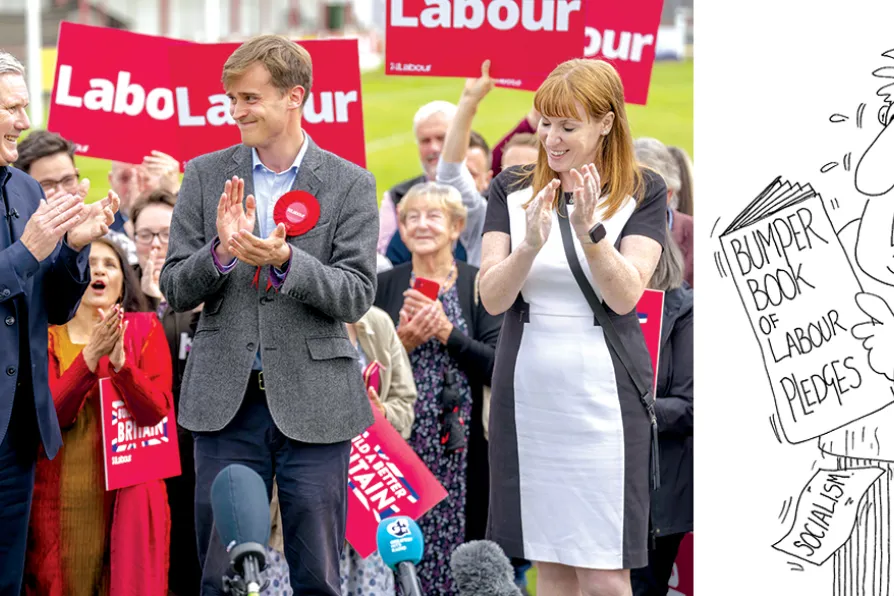From London’s holly-sellers to Engels’s flaming Christmas centrepiece, the plum pudding was more than festive fare in Victorian Britain, says KEITH FLETT

 APPLAUDING WHAT EXACTLY? Newly elected Labour MP for Selby and Ainsty, Keir Mather, with his leader Sir Keir Starmer and deputy leader Angela Rayner at Selby football club, North Yorkshire; (right) cartoon by JAB
APPLAUDING WHAT EXACTLY? Newly elected Labour MP for Selby and Ainsty, Keir Mather, with his leader Sir Keir Starmer and deputy leader Angela Rayner at Selby football club, North Yorkshire; (right) cartoon by JAB
THE discussion in the Morning Star and elsewhere on the left, on the approach socialists should take to the Labour Party seems to be growing more intense and while I understand and am sympathetic to the frustration and anger many socialists feel, I continue to believe that the left should dig in and challenge the current Labour Party leadership.
I completely agree that that leadership certainly needs challenging. I am working on the assumption that most readers of the Star are not avid readers of the website Conservative Home; however, in early September it published the latest polling findings and commentary by Lord Ashcroft.
This is how the article begins: “’Britain is broken — people are getting poorer, nothing seems to work properly, and we need big changes to the way the country works, whichever party is in government’.” In my latest polling, an extraordinary 72 per cent agreed with this statement, including more than half of 2019 Conservative voters. Only just over one in five took the alternative view…”

In the run-up to the Communist Party congress in November ROB GRIFFITHS outlines a few ideas regarding its participation in the elections of May 2026

VINCE MILLS cautions over the perils and pitfalls of ‘a new left party’

From Gaza complicity to welfare cuts chaos, Starmer’s baggage accumulates, and voters will indeed find ‘somewhere else’ to go — to the Greens, nationalists, Lib Dems, Reform UK or a new, working-class left party, writes NICK WRIGHT

JOE GILL looks at research on the reasons people voted as they did last week and concludes Labour is finished unless it ditches Starmer and changes course










